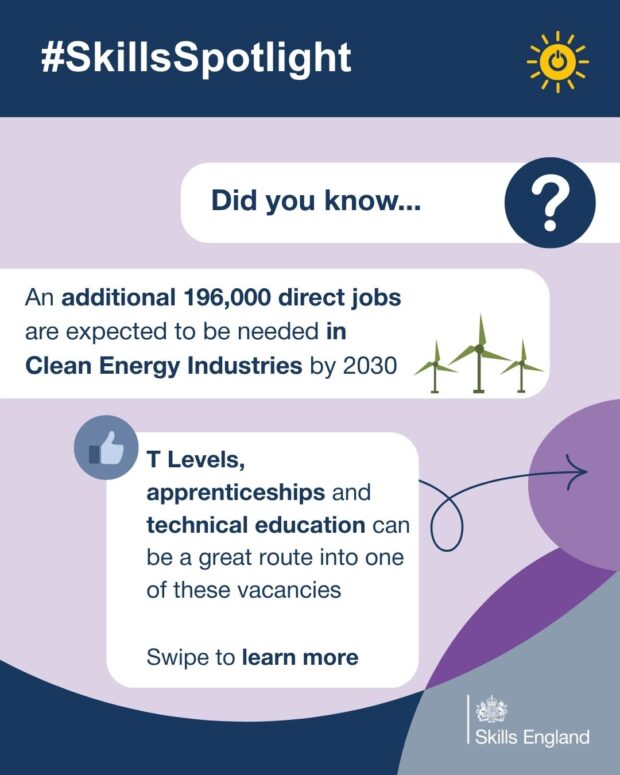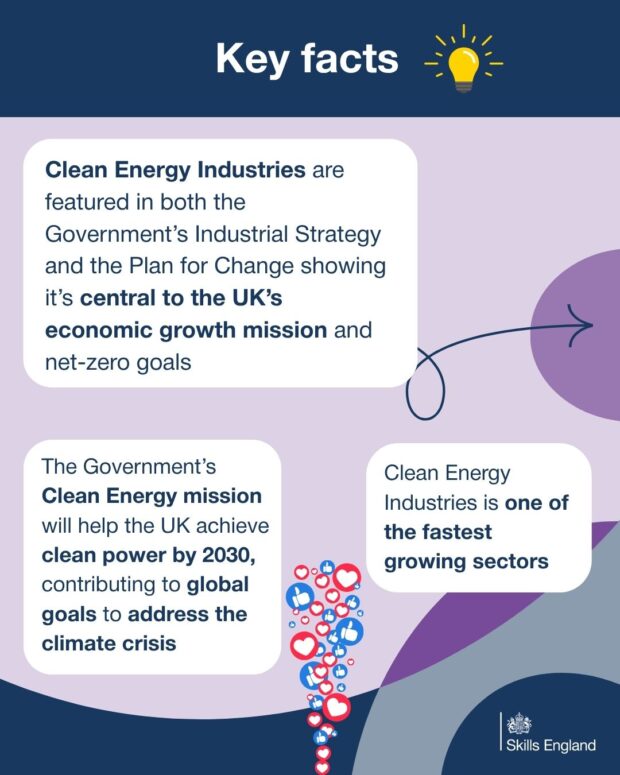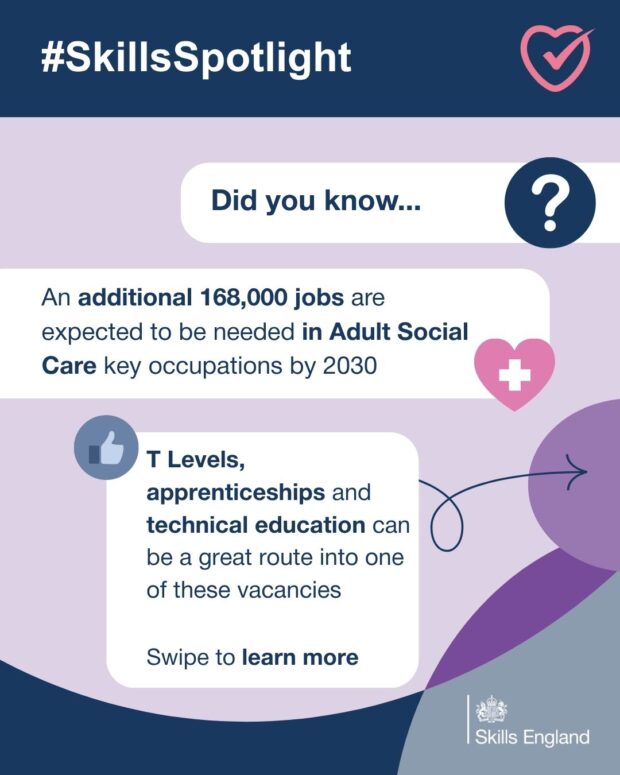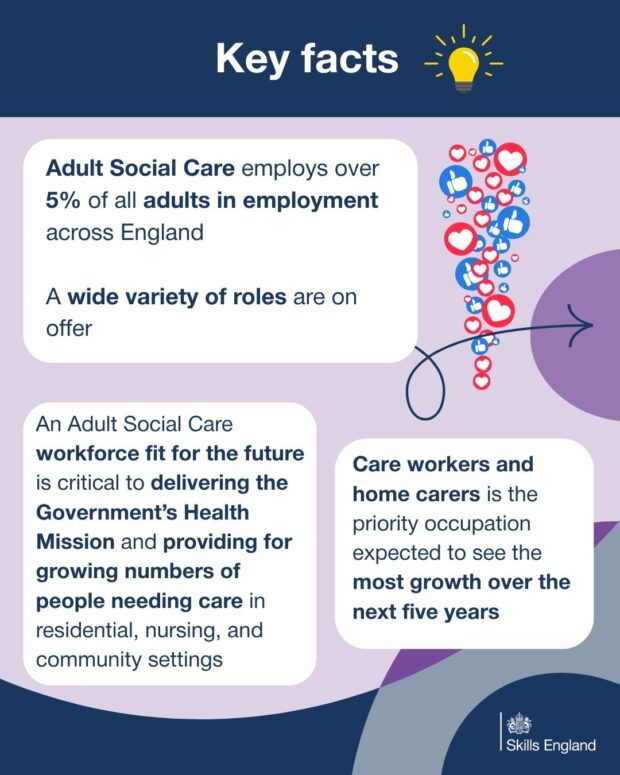
T Levels and apprenticeships offer young people brilliant pathways into thriving industries and allow employers to shape the skills of the workforce of tomorrow.
Read on to learn how these training options are giving learners and employers better skills for better jobs.
What are T Levels and apprenticeships?
T Levels and Apprenticeships are methods of study which offer technical education qualifications upon completion.
There are some distinct differences between the two types of study, but both offer a more hands on approach to learning in all kinds of specialisms
An apprenticeship is:
- studying while working for an employer
- on the job training with a percentage of time studying away from the workplace
- an opportunity to stay with the same employer following the course
If you decide to do an apprenticeship, you will:
- be age 16 or over
- earn a wage throughout your training
- study between 1-4 years, depending on the level and sector
If you are 18 or over, you can also do a degree apprenticeship. These higher-level qualifications offer you the opportunity to gain a degree whilst combining university study and paid workplace experience.
A T Level is:
- a technical qualification worth the equivalent of 3 A Levels
- a chance to experience a work placement without being committed to one employer
If you decide to do a T Level, you will:
- be between 16 to 19 years old
- study for two years
- work towards the equivalent to three A Levels, as a recognised qualification for further study or work
- experience a mix classroom learning, in a school or college, with a substantial work placement
- focus on skills that employers need in their businesses
What tools do we have to help you?
Skills England has created a range of helpful tools to support people exploring career options and training routes.
We've developed occupational maps that show training option progression paths from T Level to apprenticeships, giving you a clear picture of potential career paths and skills you will need to meet your goals.
We also have an apprenticeship finder that showcases all of the available apprenticeships, and a qualifications finder that lists Skills England approved technical qualifications aligned to workplace standards, including different T Levels, Higher Technical Qualifications (HTQs), and Technical Qualifications (TQs).
The Skills England Assessment of Priority Skills to 2030 report offers a detailed analysis of future employment needs across the priority sectors of the Industrial Strategy and Plan for Change, and highlights the scale of demand for apprenticeships and broader skills training.
The report findings show that demand for jobs in priority sectors is expected to grow significantly by 2030.
Employment in priority jobs across these ten key sectors is set to grow by 0.9 million by 2030, creating plenty of new opportunities. Around two-thirds of these jobs will expect workers to have qualifications at level 4 and above, while one-third will expect workers to have level 2 or 3 qualifications. T Levels are delivered at level 3, whilst apprenticeships can be delivered at levels 2 and above.
That's a lot of jobs to pick from if you choose a technical education training path!
Gaining the skills needed to pursue a career in one of these sectors could set you on the path to personal and professional success from a young age.
How can you get a job in a priority sector?
Explore the graphics below to learn more about two of the priority sectors; Clean Energy Industries and Adult Social Care.
The other sectors are:
- Advanced Manufacturing
- Creative Industries
- Defence
- Digital and Technologies
- Financial Services
- Life Sciences
- Professional and Business Services
- Housebuilding
Clean Energy Industries

An additional 196,000 direct jobs are expected to be needed in Clean Energy Industries by 2030.
T Levels, apprenticeships, and technical education can be a great route into one of these vacancies.

Clean Energy Industries are featured in both the Government’s Industrial Strategy and the Plan for Change showing it’s central to the UK’s economic growth mission and net-zero goals.
The Government’s Clean Energy mission will help the UK achieve clean power by 2030, contributing to global goals to address the climate crisis.
Clean Energy Industries is one of the fastest growing sectors.
Adult Social Care

An additional 168,000 jobs are expected to be needed in Adult Social Care key occupations by 2030.

Adult Social Care employs over 5% of all adults in employment across England.
A wide variety of roles are on offer.
An Adult Social Care workforce fit for the future is critical to delivering the Government’s Health Mission and providing for growing numbers of people needing care in residential, nursing, and community settings.
Care workers and home carers is the priority occupation expected to see the most growth over the next five years.
Ready to start your journey?
Visit Skills England’s occupational maps, apprenticeship finder and qualifications finder to help you find a pathway that suits you, and then learn more about becoming an apprentice or studying for a T Level.
Once you've found out all you need to know, apply for an apprenticeship or find a T Level near you.
Leave a comment